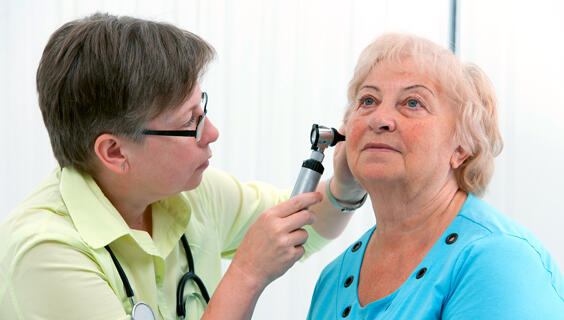
Understanding the Various Causes of Hearing Loss: A Comprehensive Overview
Hearing loss is a condition that affects millions of people around the world. It can be caused by many different factors, ranging from genetics to exposure to loud noises. Understanding what causes hearing loss and how it can be prevented or treated is essential for maintaining healthy ears. This article will provide an overview of the various causes of hearing loss and offer tips on how to protect your hearing health. By being aware of the risks associated with hearing damage and taking steps to reduce them, you can ensure that your ears remain in good health for years to come.
1. Age-Related Hearing Loss:
As you age, the tiny hairs of your inner ear gradually become less efficient at transmitting sound waves to your brain. This is known as presbycusis and is the most common cause of hearing loss among seniors. While this type of hearing loss cannot be prevented, it can be managed with hearing aids or other treatments such as cochlear implants. You should know that choosing the right hearing aids can be a challenge. It’s important to consult with an audiologist to make sure you have the right fit and features for your specific needs. Also, it’s essential to have regular hearing tests done by a qualified professional.
2. Exposure to Loud Noises:
Exposure to loud noise is one of the most common causes of hearing loss and can occur in any setting. It may be caused by the use of personal music players such as iPods, exposure to loud machinery at work or even simply attending rock concerts without protection. Noise-induced hearing loss (NIHL) is particularly dangerous because it tends to happen gradually over time and can go unnoticed until damage has already been done. To protect your ears from loud noises, always wear earplugs or other protective gear when necessary and avoid situations that you know are likely to be noisy for extended periods of time.
3. Genetics:
In some cases, hearing loss can be the result of genetics. Certain syndromes, such as Usher syndrome and Waardenburg syndrome, are known to cause hearing loss in babies or young children. It is important to remember that genetic hearing loss is often progressive and cannot be reversed with treatment. However, if you have a family history of hearing loss, it is important to monitor your own hearing health closely and take steps to protect your ears from potential damage. Additionally, if your child is diagnosed with a genetic form of hearing loss, early intervention, and treatment can be beneficial for helping them to adjust.
4. Medications:
Certain medications can have an adverse effect on your hearing health. Certain antibiotics, chemotherapy drugs, diuretics, and even over-the-counter pain relievers like aspirin have been known to cause temporary or permanent hearing damage when used in excessive amounts or over long periods of time. If you are taking any medication that may potentially affect your hearing health, it’s important to consult with a doctor before continuing its use. This will help to ensure that you are taking the medication in a safe and appropriate manner.
5. Infections:
Infections of the ears, such as otitis media, can sometimes lead to hearing loss if left untreated or if treatment is inadequate. It’s important to seek medical attention for any signs of an ear infection, such as pain, ringing in the ears, or fluid draining from the ear canal. This will help ensure that any underlying condition is treated before it has a chance to cause serious damage to your hearing health. For instance, a bacterial infection may require antibiotics in order to be treated effectively.
6. Illness and Injury:
Injury to the ear due to trauma or certain infections can also lead to permanent hearing loss. Similarly, some illnesses such as meningitis can lead to hearing loss if not treated quickly and correctly. If you have underlying medical conditions that could potentially affect your hearing health, it is important to be aware of any potential signs or symptoms and seek medical attention right away.
By being aware of the various causes of hearing loss and taking steps to reduce your risk, you can ensure that your ears remain healthy for years to come. Remember to consult with an audiologist or ear specialist if you notice any changes in your hearing and always protect your ears from loud noises by wearing earplugs when necessary. Finally, if you are taking any medications that might affect your hearing health, speak with your doctor before continuing their use. Taking these simple precautions will help keep your ears safe and sound.